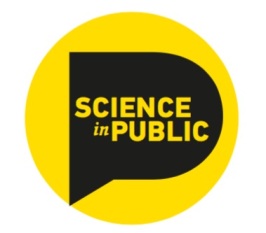
Science in Public 2017
Science, Technology & Humanity
11th Annual Science in Public Conference
10th-12th July 2017, University of Sheffield. #SIPsheff17

Keynote speakers:
Day 1 : Prof. Sarah Whatmore (School of Geography and the Environment, University of Oxford).
Day 2: Prof. Steven Shapin(Department of the History of Science, Harvard University)
Day 3: Prof. Dan Sarewitz (Consortium for Science, Policy and Outcomes, Arizona State University)
**Call for Papers open now** Closes April 18th.
Submissions are now being accepted for #SiPsheff17. Please submit your paper proposal of no more than 300 words as a Word document to the appropriate panel at the links below:
List of open panels available for submission (html, click panel titles for more info)
List of open panels available for submission (pdf)
Submit your paper proposal here
Queries related to panels should be directed to the panel organisers (contact details available on the list of open panels). Successful paper submitters will be informed on April 26th.
A limited number of early bird registration places will become available on May 1st.
CONFERENCE THEME
Science and technology are essential ingredients of our humanity. The emergence of fruitful and diverse scholarly perspectives on the history, practice, communication, governance and impacts of scientific knowledge reflects this fact. Yet rapid scientific and technological change has also unsettled the idea of what it means to be human; for example, through new frontiers in physical and cognitive enhancement, shift to knowledge economies, and potential threats to employment from mass automation. These changes take place in a context of broader challenges to expertise and evidence, dramatically illustrated by the EU referendum and the election of Donald Trump. Taking these matters seriously calls for a renewed focus on compassion, benevolence and civilization. This year at Science in Public, we ask:
How do science and technology affect what it means to be human?
We invite proposals for papers and other interventions from a wide range of disciplines – including STS, history of science, science communication, sociology, law, disability studies, geography, urban studies, development studies – that reflect on this question across a range of topics including, but not limited to:
- Law, governance and new technologies
- Responsible research and innovation
- Political economy of science and technology
- Gender, science and technology
- Science policy
- History of science and technology
- The citizen in science and technology
- Race and postcoloniality
- Dis/ability in science and technology
- Social, political and scientific imaginaries
- Science and technology in science fiction
- Science, art and humanity
- Public involvement in science and technology
- Social media as (in)humane technology
- Human enhancement
- Robotics
- Grand challenges to the future of humanity
- Geographies of science and technology
- Science and sustainability
Questions? Email warren.pearce@sheffield.ac.uk



